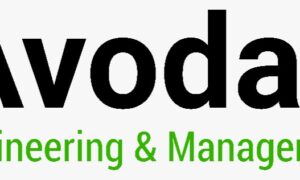The automotive sector is very competitive, and the standards being pursued have traditionally been the key to manufacturing or supplier success. Perhaps the most significant quality management system for this sector has been the standard known as the International Automotive Task Force-IATF’s 16949. These capabilities make the companies seek IATF 16949 consulting services for compliance, process improvement, and sustained improvement. In this blog, we are going to discuss the importance of IATF 16949 consulting, its relationship with ISO 9001, and why implementing a robust risk register is crucial for effective quality management.
What is IATF 16949?
The IATF 16949 standard focuses on the organization’s Quality Management System requirements for automotive production, service, and accessory parts. As it was said, it is based on the basic structure of ISO 9001 but carries in itself more detailed requirements peculiar to the automotive industry. IATF 16949 certification is important for joining this global automotive supply chain, as it lends proof to a company’s commitment to quality products with minimal risks regarding poor manufacturing defects, customer satisfaction, and regulatory non-compliance.
IATF 16949 consulting plays a very important role in:
IATF 16949 is a complex set of requirements, difficult to handle even for those organizations which have very little experience with quality management standards. This necessitates the help of some sort of IATF 16949 consulting service. An IATF 16949 ISO 16949 consultant will be rich in knowledge regarding the requirements of the said standard and shall be able to advise a business organization on the development or improvement of its QMS to meet the criteria proposed by IATF 16949. Following are some of the most important ways IATF 16949 consulting supports automotive businesses.
Gap Analysis and Assessment: An IATF 16949 consultant initiates the gap analysis, a deep examination for comparing the company’s current quality management processes to the requirements of IATF 16949. Thus, this assessment has identified areas that need improvement and helps set a roadmap for meeting certification standards.
Process Optimization: Consultants also work in collaboration with the organization to optimize the production and service process. The aim is always towards minimal production waste, which maximizes efficiency and ensures quality of the product. Indeed, effective process optimization is the key to customer satisfaction and competitive advantage in the automotive sector.
The most critical ingredients in IATF 16949 are documentation and compliance. Consulting on IATF 16949 helps in providing the documents necessary for making successful quality manuals and procedures down to minute details of process audits. These will be developed in compliance with IATF and ISO 9001, such as identification of critical processes, resource management, production controls.
It also deals with the management of risk and the development of a risk register. Another unique aspect of IATF 16949 is the principle of risk-based thinking. The new standard requires that the organization address risks from product creation to supply chains, right up to the interaction with customers. In this regard, a significant tool is the risk register, which is really a tabular record of the probable risks that may influence business.
IATF 16949 consulting helps the organization develop a Risk Register that identifies, evaluates, and prioritizes the risks, while also proposing mitigation strategies. This proactive approach to preventing issues from arising enables companies to have smoother operations with more consistency in the quality of products.
Training and Knowledge Transfer: ISO 16949 consultants will not only help in attaining the certification but also ensure long-term success through internal knowledge building. The training sessions conducted by the consultant lead to the empowerment of employees regarding understanding and implementing principles of IATF 16949, hence making the organization more resilient and self-sufficient.
Why a Risk Register is Important in Automotive Quality Management
The risk register recently has become a major tool in the IATF 16949 standard, enabling proactive risk management. Supply chain disruption, production delay, and quality control failure are serious financial implications found in an industry that is going at high speed, like automotive manufacturing. Companies can track these kinds of risks and make timely corrective actions by using a risk register.
For instance, in case the risk register identified possible risks concerning suppliers’ reliability, contingency plans could be developed along with a set of criteria for alternate suppliers. In this way, the risk register will not only protect the company but also enhance its reputation since every customer will get the same quality persistently. IATF 16949 consulting services base their beliefs on the use of a risk register in their risk assessment in order to identify challenges, arrive at informed decisions, and thereby pursue continuous improvement-a reason for sustaining business growth in the automotive industry.
Benefits of IATF 16949 Certification for Automobile Firms
The certification of IATF 16949, through services provided by IATF 16949 consulting, embeds the following benefits:
Improved Product Quality: IATF 16949 can mean companies will be able to tighten quality control, meaning fewer defects and happy customers.
Market Access: Most major automotive manufacturers require IATF 16949 from their suppliers. The certification is, therefore, a market enhancer.
Operational Efficiency: Smoothened operations due to the attention on process optimization and risk management result in fewer delays, reduced waste, and associated costs.
Better Reputation: Certification is a sign of commitment to quality and reliability; hence, it will help in winning new customers and consolidating relations with previous ones.
Conclusion
Certification according to IATF 16949 for organizations in the automotive industry is not a matter of legislation but a strategic step that reinforces their competitive position. The consulting services for IATF 16949 provide experienced guidance to put organizations on track toward the fulfillment of the requirements of the standards, help implement a proactive risk register, and take advantage of streamlined operations and quality improvement. Thus, adopting the IATF 16949 standards is one of the strong ways to build trust and reputation in a highly demanding global market where the clients bear ruler-like authority.



































